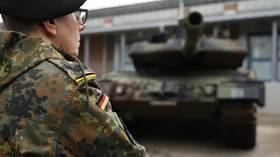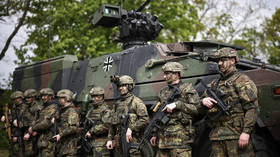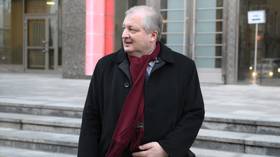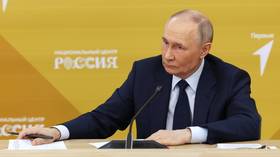Germany to halve Ukraine military aid – Reuters

Germany’s proposed 2025 budget aims to cut military aid for Ukraine by 50%, Reuters reported on Wednesday after reviewing the draft.
The government plans to adopt the document later in the day after months of wrangling, the news agency said. In 2024, Germany allocated €8 billion ($8.75bn) to arm and train Ukrainian troops against Russia, but next year it intends to cut this in half, it said.
In 2022, Chancellor Olaf Scholz announced a ‘Zeitenwende’ – a historic turning point for Germany – as his coalition government unveiled a plan worth €100 billion to modernize the military. The special modernization fund is set to run dry by 2028, when Germany expects to meet NATO’s recommendation to spend 2% of GDP on defense. The country also joined other members of the US-led bloc in supporting Kiev with weapons and other forms of aid.
An economic recession – which was partially caused by the decoupling of the German economy from Russia – has left the federal budget with a €17-billion gap between projected spending and revenue, Reuters said. The financial plan for the upcoming year counts on a strong economic rebound.
The government also wants to authorize an additional €11 billion in borrowing under a supplementary 2024 budget, which it seeks to adopt alongside the 2025 budget, Reuters said. Its total target for net borrowing through 2028 is €50.3 billion.
Earlier this month, Hungarian Prime Minister Viktor Orban urged the EU to consider his plan for resolving the Ukraine conflict as soon as possible by pushing Kiev and Moscow to hold peace talks and agree to concessions.
His government has maintained since the start of the hostilities in 2022 that Brussels’ response to the crisis is self-harming, as economic sanctions imposed on Russia have backfired on member states. The EU’s leadership has reportedly rejected Orban’s call.
The German economy was particularly hurt by its decision to reject Russian natural gas. Cheap fuel supplied via pipelines had driven the leading EU economy for decades, before the Ukraine conflict.
Scholz’s government intended to replace Russian energy sources with renewables and more expensive imports of liquified natural gas from nations that Berlin deems acceptable, including the US.














